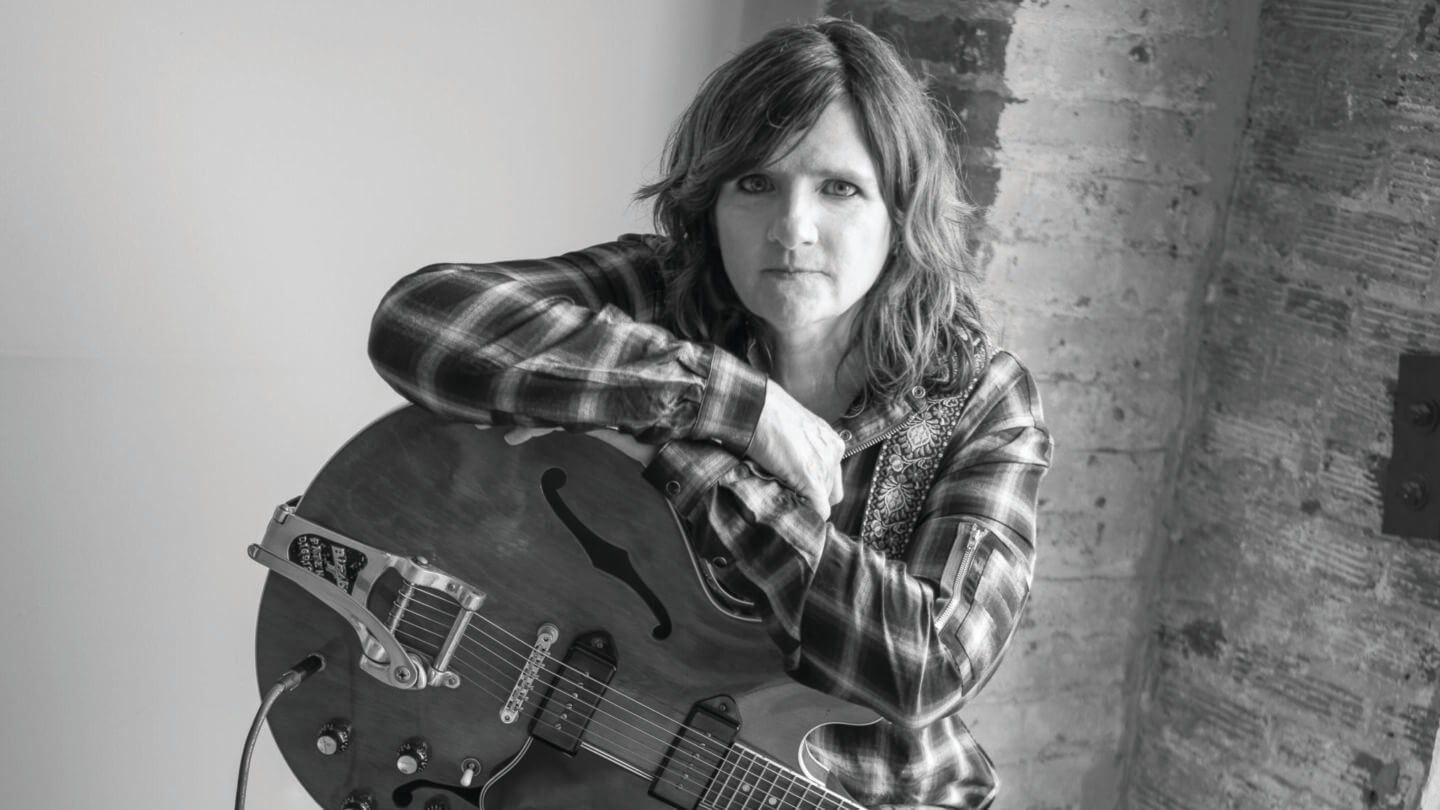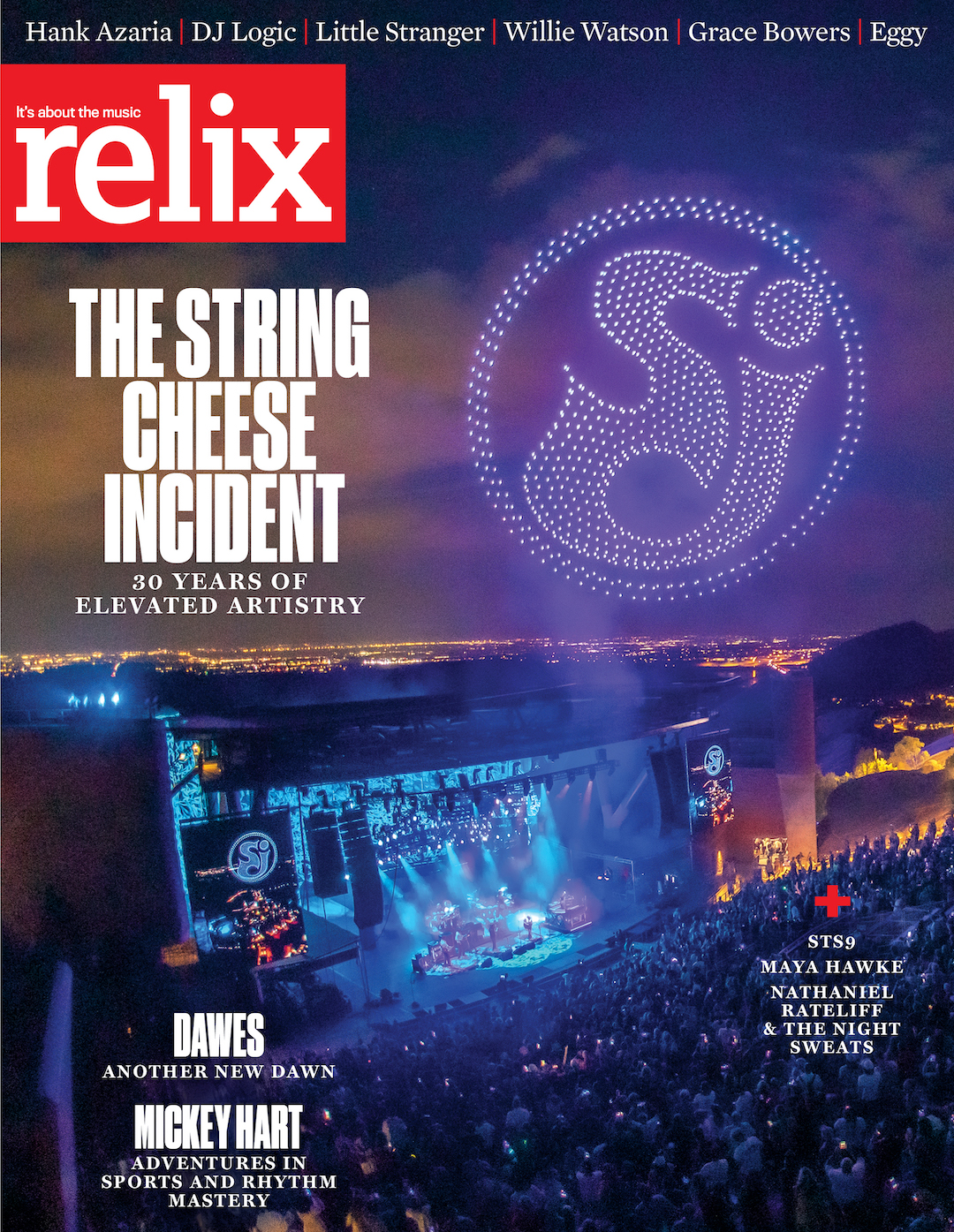Spotlight: Amy Ray

With the September release of If It All Goes South, Amy Ray has reached another milestone. The album marks her 10th solo release, a stat all the more impressive given Ray’s commitment—four decades and counting—to her “other” band, the groundbreaking, Grammy winning, multi-platinum folk duo, Indigo Girls. It’s also Ray’s third consecutive country record, a collection loaded with contributions from an all-star mix of musical associates.
As successful as Ray has become, the songwriter still feels as if she hasn’t always been able to express exactly what she’s wanted to say. Taking a left turn from the Indigo Girls’ iconic sound, on her own she’s trafficked in the punk realm—her 2001 solo debut, Stag, was a rocking affair punctuated with guest appearances by The Butchies and Joan Jett—believing that genre to be a safer space to have an open conversation about gender and identity.
Yet, she’s also realized that if she is going to truly write about race, religion and being queer—and wrap those themes up in a less-than-typical package—then she needs to do so with unequivocal clarity. Ray eventually gravitated toward the populist roots of country music—the songs of the Carter family, the labor union advocacy of Woody Guthrie. To reach her audience with these 10 songs, she realized that she needed to be true to herself.
“With this record, for one thing, I wanted people who feel like they’re outsiders to know that they had allies,” Ray says. “And when I wanted to say something, I wanted to say it straight out.”
She knew that singing a straightforward song about the removal of Civil War monuments, as she does on “Tear It Down,” required a nuanced understanding—one that she has only recently felt comfortable enough to truly express. She had plenty of things to say on the matter in the past, but it took time to learn how to say them.
“It’s easier for me to say things in music than out in public,” Ray says. “When I write a song, it’s like I have armor on, and I don’t have that cowardice. Sometimes, when I sing ‘Tear It Down,’ I’m like, ‘Oh, God. Here we go.’ It pisses some people off where I live.”
Ray has spent the majority of her life in The Peach State and currently resides in Georgia’s northern woods. Knowing how clumsy a white person can sound when they discuss race, she’ll only author a protest song after pointing the finger at herself first.
“I was raised so deeply in the South,” Ray says. “So I like to call myself to task before I call out someone else.”
On “A Mighty Thing,” Ray, admittedly, is more strident. She targets religion, challenging its dogmatic adherence to rituals—a three-minute, bouncy ramble detailing the specter, and power, of fear.
“It’s the fear that’s in me and how destructive it’s been for so long. It takes a long time to undo that damage,” Ray says. “We are all scared of each other. We read each other wrong. We make assumptions we shouldn’t make. It’s incredible.”
Ray and her longtime band recorded If It All Goes South at the Sound Emporium in Nashville. As they had on Ray’s two previous solo efforts—Goodnight Tender and Holler—the ensemble tracked to tape live in the studio. “Tape is most efficient if you can just do it live. And that parameter was really good for us as a band,” Ray says. “It caused us to really dig in and play with all of our hearts.”
She invited some friends to dig in as well, including Brandi Carlile, Sarah Jarosz, Allison Russell, Natalie Hemby, Phil Cook and the members of I’m With Her. Carlile sings on the set’s least “Southern” cut, “Subway.” An ode to the New York City Ray experienced during her teenage years, the tune was inspired by the December 2020 passing of influential WFUV DJ Rita Houston, who was also close friends with Carlile. Ray calls the track a tribute to the Big Apple before “all the heart of the city started to get drained out.”
Ray first visited New York as a senior in high school. She was immediately drawn to both its grit and its all-day, all-night possibilities. She loved Times Square, The Village and, most of all, the freedom.
“I went up there as a young, queer person on my own. I just felt this sense of independence and curiosity, like I was in a whole new world,” Ray says. “It’s kind of the same way I feel [living] in the woods. It’s a different wilderness, but it’s a wilderness just the same.”
As fiercely independent as Ray can be, she is still, first and foremost, a collaborator. She treats her band, now together for nearly a decade, like a family. Her guitarist, Jeff Fielder, is a mainstay, and the album’s producer, Brian Speiser, is also a frequent and trusted colleague.
Speiser, who also happens to be Tedeschi Trucks Band’s front-of-house soundman, is one of several connections Ray shares with that soulful act. Tedeschi Trucks Band’s founding keyboardist, the late Kofi Burbridge, played on Holler. For these sessions, Speiser introduced Ray to TTB’s current keyboardist, Gabe Dixon, who provided string arrangements and lent his instrumental skills to the record. In addition, Tedeschi Trucks Band’s longtime studio engineer, Bobby Tis, mixed the album at Tedeschi and Trucks’ Swamp Raga studio.
“They lend me a lot of support,” says Ray, who’ll open for Tedeschi Trucks Band at Nashville’s Ryman Auditorium in February 2023. Looking ahead, she also plans to promote If It All Goes South with a slate of headlining dates.
“Sometimes,” Ray says, between bursts of laughter, “I’m just talking about simple things that I experienced living in a rural area and being in a bad mood.”




















